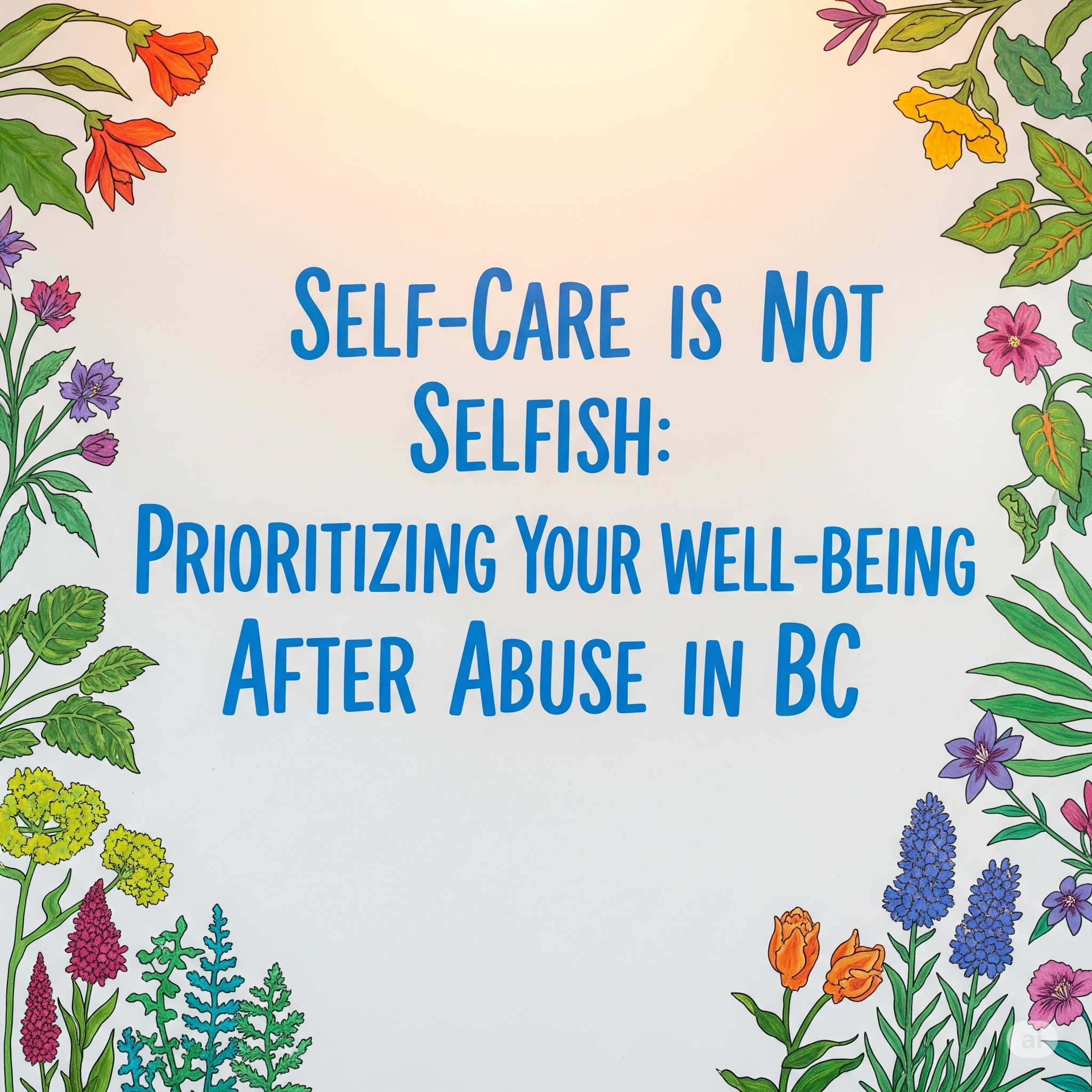Self-Care is Not Selfish: Prioritizing Your Well-being After Abuse in BC
This blog post emphasizes the importance of self-care for individuals in British Columbia who are healing from abuse, highlighting that prioritizing one's well-being is a crucial and non-selfish aspect of recovery.

Self-Care is Not Selfish: Prioritizing Your Well-being After Abuse in British Columbia
Healing from abuse is a courageous journey, and self-care is a vital component of that process. In BC’s diverse landscapes—urban centres, small towns, remote regions—finding ways to nourish your body, mind, and spirit can help you reclaim strength and resilience.
Why Self-Care Feels Difficult After Abuse
- Energy depletion and focus on survival needs can leave little capacity for self‑care
- Social pressure to appear strong or prioritize others may discourage asking for help
- In BC’s culture of resilience, pausing to care for yourself can feel counterintuitive
Reframing Self-Care as Essential Healing
- Self‑care rebuilds your foundation: you cannot pour from an empty cup
- Attending to your needs strengthens emotional regulation and coping skills
- Prioritizing well‑being supports long‑term recovery and reduces risk of burnout
Self-Care Practices Tailored to BC
Connecting with Nature
- Hike local trails or stroll along beaches to absorb calm and perspective
- Sit quietly by a river or lake to practice mindful breathing and reflection
Gentle Movement
- Try restorative yoga classes at community centres or online BC-based studios
- Swim in public pools or lakes for low‑impact exercise and stress relief
Nourishing Nutrition
- Visit farmers’ markets for fresh, seasonal produce and support local growers
- Prepare simple, balanced meals that fuel recovery and mood stability
Rest and Sleep
- Establish a relaxing bedtime routine: limit screens, use calming scents, listen to soft music
- Prioritize consistent sleep schedules to aid emotional and physical healing
Creative Expression
- Attend free or donation‑based art workshops at local galleries or community centres
- Write in a journal, paint, or craft to process emotions and celebrate progress
Mindfulness and Meditation
- Join guided meditation sessions offered by BC health authorities or nonprofits
- Use mindfulness apps recommended by local therapists to build daily practice
Seeking Professional Support
- Access sliding‑scale counselling through VictimLink BC referrals
- Find trauma‑informed therapists via provincial directories for specialized care
Accessing Support in BC
- VictimLink BC (1‑800‑563‑0808): 24/7 confidential helpline for victims of crime and trauma
- Transition Houses and Shelters: Safe temporary housing and wrap‑around services
- Community Victim Services Programs: Emergency safety planning, advocacy, and counselling
- Mental Health Support Lines: Regional crisis lines listed on Health Authority websites
Conclusion
Prioritizing your well‑being after abuse is an act of empowerment. By embracing self‑care—whether through time in nature, gentle movement, creative outlets, or professional support—you build the resilience and inner strength needed to move forward. In British Columbia, a wealth of resources stands ready to support your journey toward healing and hope.
